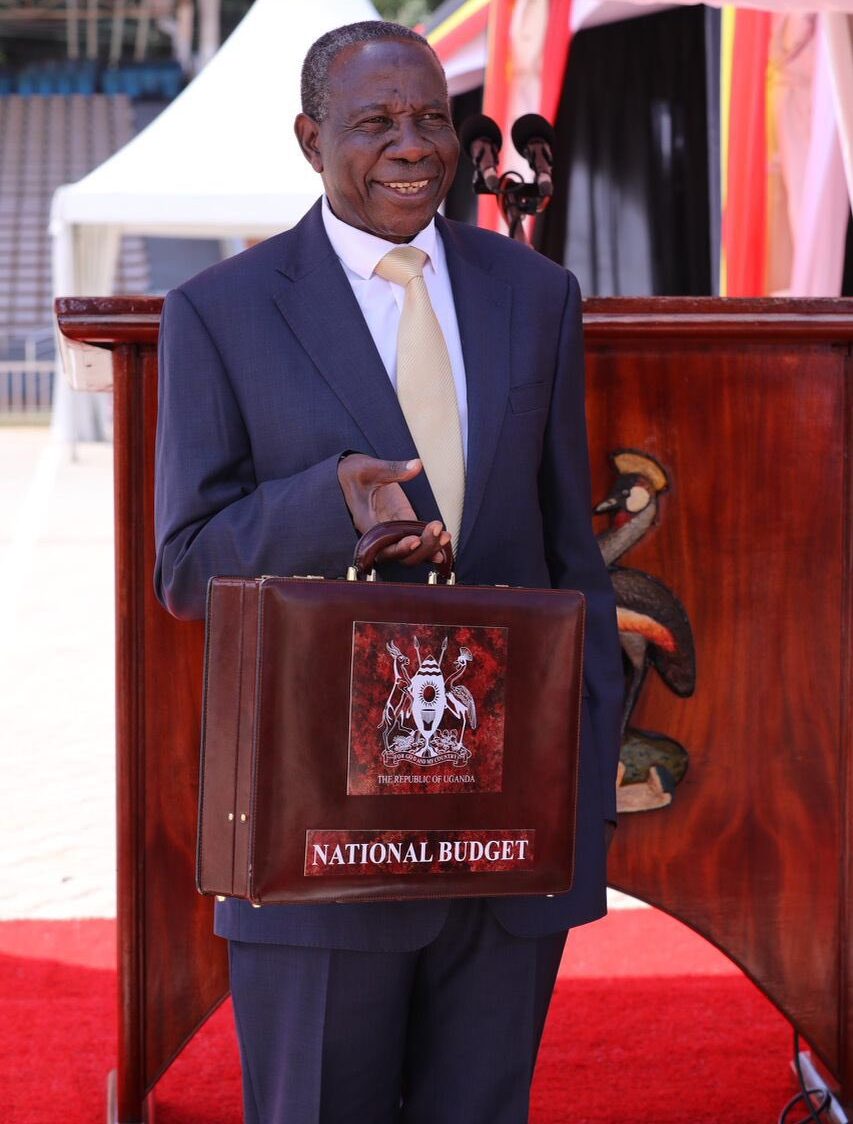As Uganda’s government unveiled its record Shs71.9 trillion budget for the 2025/2026 financial year, the opposition, led by Leader of the Opposition (LoP) Joel Ssenyonyi, presented a markedly different vision. Their Shs55.7 trillion alternative budget, themed “Combating Corruption: The Sure Way to Effective Service Delivery,” not only proposes a leaner fiscal plan but also aims to address Uganda’s chronic governance and service delivery challenges by rooting out systemic corruption.
The Rationale: Tackling Corruption as a Development Imperative
At the heart of the opposition’s proposal is the conviction that corruption is the single greatest obstacle to Uganda’s progress. Ssenyonyi emphasized that “year after year, Ugandans are told that resources are scarce, yet we continue to see trillions lost to mismanagement, inflated contracts, and outright theft.” The Inspector General of Government estimates that Uganda loses approximately Shs10 trillion annually to corruption—about a fifth of the national budget—highlighting the magnitude of the problem.
The opposition’s alternative budget is thus anchored in the belief that reclaiming these lost resources is essential for meaningful investment in critical sectors such as healthcare, education, agriculture, and infrastructure. By prioritizing anti-corruption measures, the opposition argues that Uganda can achieve inclusive development and improved service delivery for all citizens.
Key Features of the Alternative Budget
1. Reduced Spending and Fiscal Discipline
The opposition’s Shs55.7 trillion budget is Shs16.5 trillion less than the government’s proposal, which they dismiss as “unrealistic and unattainable”.
The budget aims to cut unnecessary expenditures and focus on efficient allocation of resources, with a particular emphasis on reducing debt servicing and eliminating wasteful supplementary budgets.
2. Resource Mobilization and Debt Management
The opposition agrees with the government’s projection that the Uganda Revenue Authority can collect Shs35.6 trillion locally, up from Shs32 trillion in the current year.
However, they propose to drastically reduce net domestic borrowing (to Shs6.2 trillion from the government’s Shs9.2 trillion) and external financing for project support (to Shs8.9 trillion from Shs11.1 trillion).
They also suggest halving domestic refinancing rollover and increasing local government collections, aiming for a more sustainable fiscal path.
3. Strategic Sectoral Investments
The budget prioritizes funding for public hospitals, support for small-scale farmers, improvements in education, and investment in sustainable infrastructure.
With nearly 19% of households relying on unimproved water sources and almost 50% on unimproved sanitary facilities, the opposition calls for significant investment in water infrastructure and expanded sanitation programs.
The health sector, currently receiving only 6.1% of the budget, would see its allocation increased to at least 15% under the opposition’s plan.
4. Transparency, Accountability, and Citizen Engagement
The opposition proposes placing every government contract online to enhance transparency and allow citizens to hold officials accountable.
They advocate for protecting whistleblowers and establishing a salary review commission to address duplication and inefficiency in public offices.
Critique of Government Policies
The opposition’s alternative budget is also a pointed critique of the government’s economic management. Ssenyonyi and other opposition leaders accuse the ruling party of prioritizing personal wealth accumulation over public service, citing projects like the Lubowa Specialized Hospital and Dei BioPharma Ltd as examples of “dubious state-funded ventures” that lack accountability and serve as conduits for siphoning public funds.
They argue that persistent fiscal indiscipline, excessive borrowing, and corruption have strained the economy, with debt servicing now consuming over 30% of the national budget, leaving little room for investment in essential services.
Political and Civil Society Backing
The unveiling of the alternative budget was attended by prominent opposition figures, including National Unity Platform president Robert Kyagulanyi, Kampala Lord Mayor Erias Lukwago, and Uganda People’s Congress president Jimmy Akena, as well as civil society leaders. This broad coalition underscores the opposition’s commitment to a people-centered, transparent, and accountable budgeting process.
Conclusion: A Call for Change
The Shs55.7 trillion alternative budget represents the opposition’s vision for a more just and prosperous Uganda. By placing the fight against corruption at the center of fiscal policy, the opposition believes it is possible to reclaim lost resources, invest in critical sectors, and deliver services that meet the needs of all Ugandans. Whether or not the government adopts these proposals, the alternative budget sets a benchmark for transparency, accountability, and people-first governance in Uganda’s ongoing budget debates.

